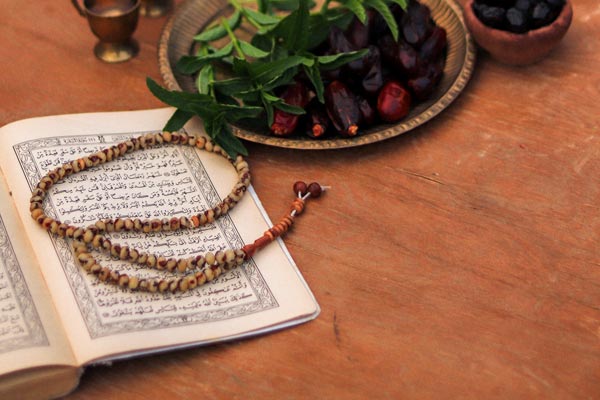The Chinese solar calendar divides the year into 24 solar terms. Grain in Ear, (Chinese: 芒种), the 9th solar term, begins on June 6 this year and ends on June 20.
中国农历将一年划分为24个节气。芒种是第9个节气,今年从6月6日开始,到6月20日结束。
The arrival of Grain in Ear signifies the ripening of crops such as barley and wheat. It is also a busy period for farmers.
芒种的到来标志着大麦和小麦等作物的成熟,对于农民来说,这也是一个忙碌的时期。
The solar terms were created thousands of years ago to guide agricultural production. The culture remains useful today to guide people's lives through special foods, cultural ceremonies and healthy living tips that correspond with each term.
节气是几千年前为指导农业生产创造的。时至今日,这一文化仍然对人们的生活指导作用,每个节气对应特定的美食、文化仪式和健康生活提示。
The following are seven things you need to know about Grain in Ear.
以下是关于芒种你需要知道的7件事。

1、An increase in rainfall
雨水增多
Rainfall increases during Grain in Ear compared to the previous eight solar terms. Regions in the middle and lower reaches of the Yangtze River are about to enter the Plum Rains season.
相较于前八个节气,芒种降雨增多。长江中下游地区即将进入梅雨季节。
Plum Rains, often occurring during June and July, refer to the long period of continuous rainy or cloudy weather. This happens to be the time for plums to ripen, which explains the origin of its name. Plum Rains is a good period for growing rice, vegetables and fruits.
梅雨在一般发生在6月和7月,指的是长时间持续的降雨或多云天气。这时正好也是梅子成熟的时候,从而解释了其名称的由来。梅雨季节是种植水稻、蔬菜和水果的好时期。
2、Pray for good harvest
祈祷丰收
"An Miao" (meaning seedling protection) is a traditional farming activity of southern Anhui province that has been practiced since the early Ming Dynasty (1368-1644). Every year when Grain in Ear comes, they hold the sacrificial ceremony to pray for good harvests in the fall. People make different types of bread from wheat flour and color them with vegetable juice. The bread is used as a sacrificial offering to pray for a good harvest and people's safety.
“安苗”(意为保苗)是安徽南部的传统农业活动,自明朝初期(1368-1644年)以来一直存在。每年到了芒种,他们会举行祭祀仪式,祈祷秋天能有好收成。。人们用小麦粉制成不同类型的面包,并用蔬菜汁染色。这些面包被用作祭祀供品,以祈祷作物丰收、人们平安。
3、Say farewell to the flora
告别花神
In ancient China, on the second day of the second solar month, people welcome the arrival of the Flower Goddess. During Grain in Ear people hold sacrificial ceremonies to bid farewell to the flora and show their gratitude.
在中国古代,农历二月初二人们会迎接花神的到来。在芒种期间,人们会举行祭祀仪式,向花神告别并表达感激之情。
Today, this custom does not exist in many areas of China. The liveliness and excitement of the ceremony can still be seen in the 27th chapter of the Chinese classic novel A Dream of Red Mansions by Cao Xueqin.
今天,在中国的许多地区,这种习俗已经不存在了。然而,我们依然可以在曹雪芹的中国经典小说《红楼梦》第27章中看到这个仪式的热闹氛围。
4、Mud wrestling
打泥巴仗
Youngsters of the Dong people in southeastern Guizhou province hold mud wrestling matches during Grain in Ear. On this day newlyweds, accompanied by their good friends, plant rice together. While planting, they throw mud at each other. At the end of this activity, whoever has the most mud on them proves they are the most popular person.
贵州东南部的侗族年轻人会在芒种期间举行打泥巴仗比赛。在这一天,新婚夫妇在好朋友的陪伴下一起种植水稻。在种植时,他们会互相扔泥巴。活动结束时,谁身上的泥巴最多,就证明他是最受欢迎的人。
5、Boil green plums
煮青梅
In South China, May and June are the season when plums become ripe. There was an allusion that Cao Cao and Liu Bei, two central figures in the Three Kingdoms period (AD220-280), talked about heroes while boiling green plums.
在中国南方,五月和六月是梅子成熟的时节。有典故云,三国时期(公元220-280年)的两位中心人物曹操和刘备一边煮青梅,一边交谈英雄事迹。
Green plums contain a variety of natural and high-quality organic acids and are rich in minerals. They can help clean blood, lower blood lipids, eliminate tiredness and improve one's looks. However, fresh plums are acerbic and need to be boiled before serving.
青梅富含各种天然优质的有机酸,和丰富的矿物质,可以清洁血液,降低血脂,消除疲劳,改善容貌。不过,新鲜梅子有点酸,要煮沸才能食用。
6、Have light food
饮食清淡
Do not eat greasy or strongly flavored food during Grain in Ear, that's the healthcare advice given more than a thousand years ago by Chinese pharmaceutical expert Sun Simiao of the Tang Dynasty (AD618-907).
在芒种期间,勿食用油腻或辛辣的食物,这是唐朝(公元618-907年)中药专家孙思邈提出的保健建议。
Generally, vegetables and coarse grains that work in lowering blood pressure and blood fat should be the first choice. During this season, people are encouraged to consume less lamb, pork, hot peppers, onions and ginger if they are frequently feeling thirsty and tired.
一般来说,芒种期间饮食应首选可以降低血压和血脂的蔬菜和粗粮。在这个时节,如果经常感到口渴和疲劳,应少食羊肉、猪肉、辣椒、洋葱和姜。
7、Eat fruits and vegetables with cool nature
食用凉性水果和蔬菜
The weather is hot during the Grain in Ear period, therefore vegetables and fruits of a cool nature are recommended.
芒种期间天气炎热,因此,建议食用凉性水果和蔬菜。
The balsam pear is a classic choice. It contains a lot of natural and nourishing water. It's also said to have healing properties which are good for patients suffering from high blood pressure or high blood sugar.
苦瓜是不错的选择。它富含天然滋润水分,据说还含有对高血压或高血糖患者有治疗作用的成分。
Other recommendations include tomatoes, cucumbers, eggplant, celery, asparagus, water melon and strawberry. according to Traditional Chinese medicine theories, they are all cool-natured and can help eliminate heat in the body and promote digestion.
其他推荐包括番茄、黄瓜、茄子、芹菜、芦笋、西瓜和草莓。根据中医理论,它们都是凉性的,可以帮助消除身体内的火气,促进消化。




